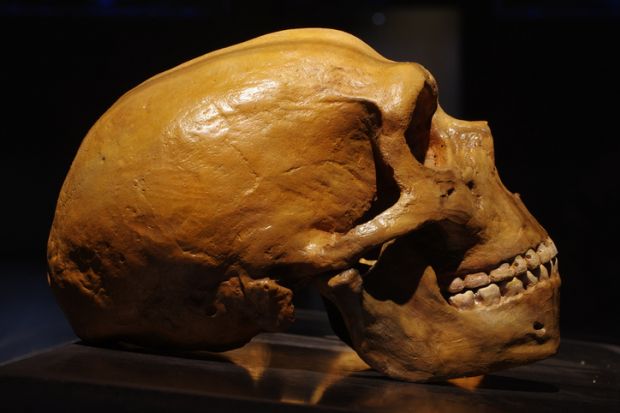A Swedish scientist who sequenced the genome of a Neanderthal has been awarded the Nobel Prize in Physiology or Medicine.
Svante Pääbo, director of the department of genetics at the Max Planck Institute for Evolutionary Anthropology in Leipzig, Germany, was named the first Nobel laureate of 2022 for his “pioneering research” using genetics to study early humans – a field known as “palaeogenetics”.
As a professor at the University of Munich in the 1990s, Professor Pääbo sequenced a region of mitochondrial DNA from a 40,000-year-old piece of bone, confirming for the first time that Neanderthals and humans were genetically distinct.
By 2009, he had sequenced an entire genome of a Neanderthal – more than 3 million pairs in total.
In 2010, he made headlines for having used DNA analysis to identify the finger bone discovered in a cave in Siberia as belonging to a previously unknown type of human, known as Denisova.
Professor Pääbo’s work also showed that ancient Neanderthals had sex and children with Homo sapiens – debunking speculation that Neanderthals and modern-day humans lived entirely apart – following the migration out of Africa around 70,000 years ago.
This ancient flow of genes to present-day humans has physiological relevance today, including for how our immune system reacts to infections, the Nobel committee said. About 1 per cent to 4 per cent of human DNA comes from Neanderthals, affecting how humans respond to disease.
“By revealing genetic differences that distinguish all living humans from extinct hominins, his discoveries provide the basis for exploring what makes us uniquely human,” the Nobel committee said.
The Stockholm-born researcher – whose father, the biochemist Sune Bergström, won the Nobel Prize in Physiology or Medicine in 1982 – took his PhD at Uppsala University in Sweden and moved to Germany in 1990. He established his own Max Planck Institute in 1997, and is also a professor at the Okinawa Institute of Science and Technology in Japan.
Register to continue
Why register?
- Registration is free and only takes a moment
- Once registered, you can read 3 articles a month
- Sign up for our newsletter
Subscribe
Or subscribe for unlimited access to:
- Unlimited access to news, views, insights & reviews
- Digital editions
- Digital access to THE’s university and college rankings analysis
Already registered or a current subscriber? Login








